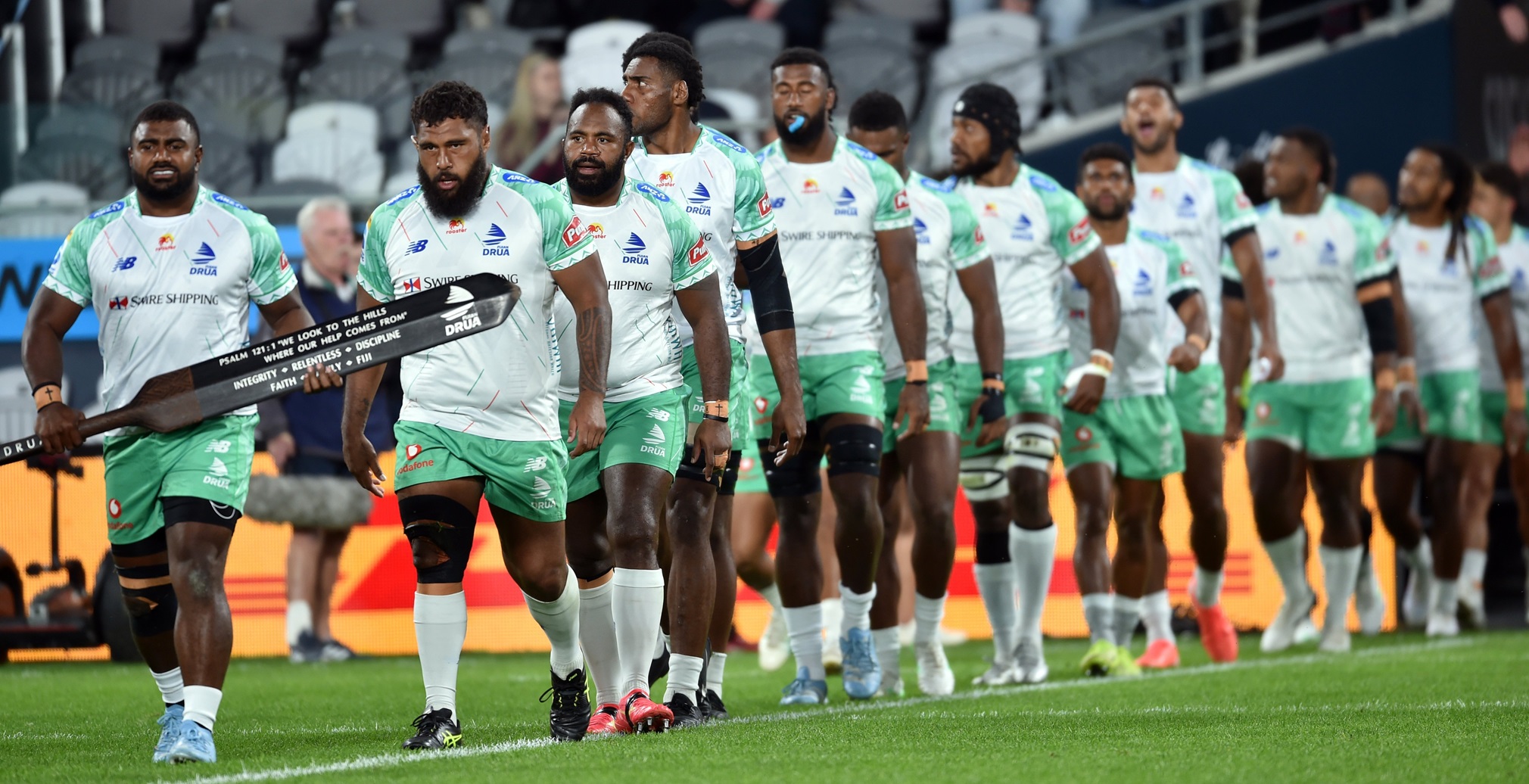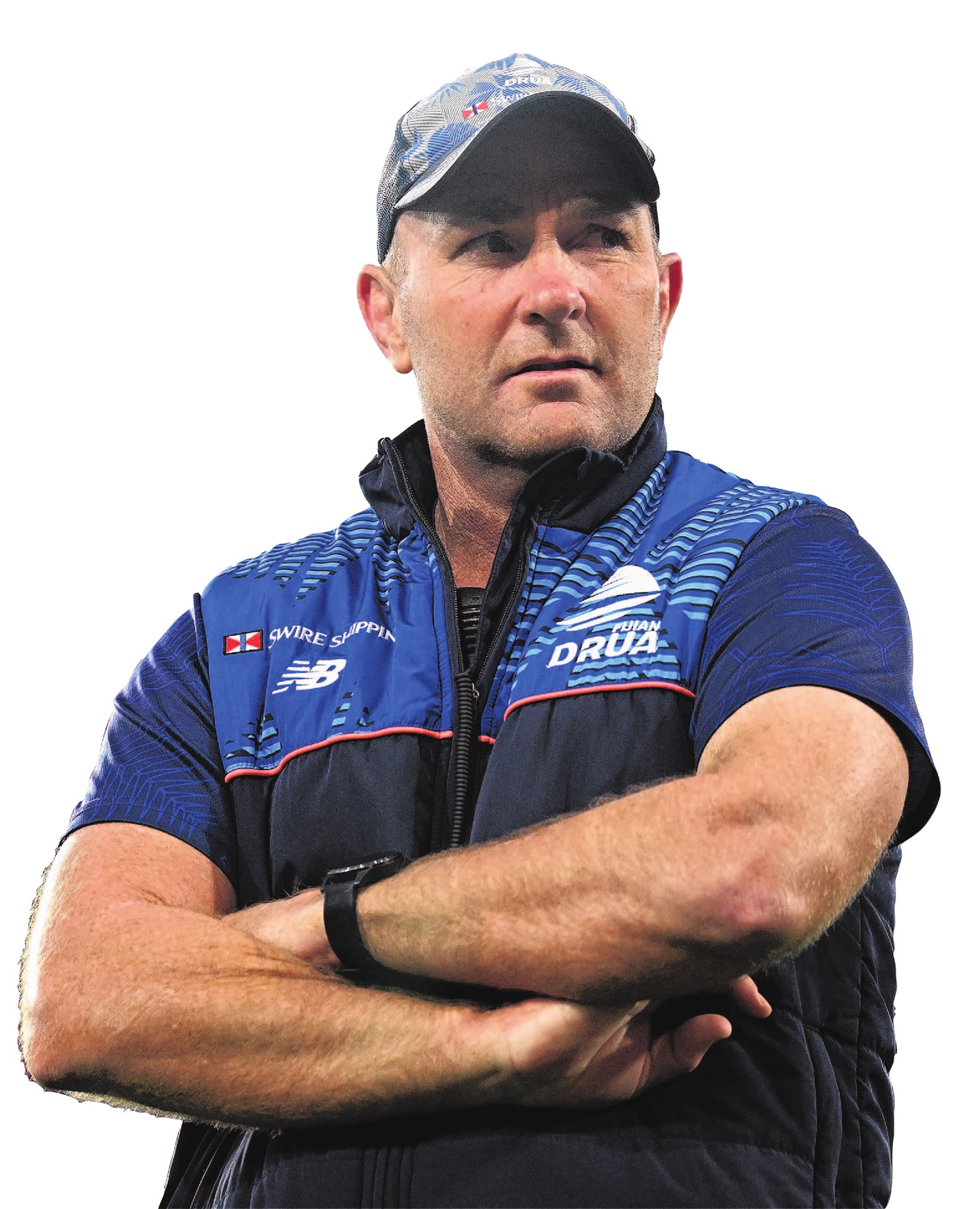
They might have several things going for them — effectively being a national side gives them a chance to be together all year, they have fanatical supporters and their conditions give them the strongest home advantage in the competition — but that has not translated into consistent success.
Their debut season (2022) finished with an 11th placing and a 2-12 record, but they improved to 6-8 and seventh in both 2023 and 2024.
Their fourth season is proving to be particularly challenging.
A 43-20 loss to the Highlanders on Saturday night kept the Drua rooted to the foot of the table with just one win from eight games, and given they trail the field by eight points, the wooden spoon seems likely to be heading to Lautoka.
Coach Glen Jackson is keeping the faith despite his team having lost 21 consecutive games outside Fiji.
"We’re here for the long game," Jackson said at Forsyth Barr Stadium.
"It’s hard to say that as a head coach after losing another game, but I’m here because I love the boys and I love what they do and how Fiji play rugby.
"It’s frustrating for everyone involved, including our fans and everyone in Fiji, that we’re not getting the results.
"But it’s not because of lack of trying, or care, or wanting to do what we want to do.
"This is a team that the competition needs. What Fiji has done for Super Rugby has been awesome, and we need to make sure that carries on."
Jackson is in his first year as Drua head coach, having stepped up from his assistant role and some years as a top-class referee.
The former Chiefs first five loves the passion the Fijians have for their Super Rugby and national teams.
"It’s a fanatical country of rugby lovers.
"So when results don’t go their way, like anywhere, you’d be disappointed if fans didn’t have a say or didn’t care about the results.
"It’s hard for our young men. They want to perform, and the pressure of performing in Fiji is high."
While it appears the Drua have gone backwards, Jackson feels they are still a competitive side and should stay positive.

"This competition is a lot different to what it’s been in the last three years.
"Losing an Australian team ... the Australian teams are certainly putting their hands up. Playing the Lions means the Australian teams are playing well, and it’s no coincidence that Joe Schmidt is doing a great job with Australia.
"They’re playing very well, and that means there are probably games where you could rest players ... you can’t essentially do that any more, because everyone is beating everyone.
"The whole management of player welfare in this longer period of time creates opportunities for teams. It’s a good scrap. The competition is going good."
Jackson took a few positives out of the loss to the Highlanders on Saturday night.
He thought hooker and co-captain Mesulame Dolokoto had a blinder, a few other players also enhanced their prospects of future selection, and there was a wonderful period just after halftime when the Drua ran riot.
But he lamented a poor start — they coughed up a try inside two minutes — and the way they fell off the pace after getting back into the game.
Asked if that glorious 15-minute spell after the break left him feeling positive about his team’s capabilities or frustrated they could not play like that with more consistency, Jackson replied: "It’s a little bit of both.
"I know we’re trying really hard. It’s a young group of men that we’re trying to gel together.
"It’s disappointing that results are not going the way we want them to after a reasonable start in the competition.
"Getting opportunities that are offered to us and not taking them means that you’re not going to get the results against any team."
Jackson was still able to crack a joke as he was asked for his thoughts on a Highlanders team co-captained by Timoci Tavatavanawai and with new winger Taniela Filimone scoring two tries on debut.
"Too many Fijians," he smiled.
"They haven’t had results going their way, but we knew how hard they would work for each other, and it showed at the end of the game with two late tries.
"It showed what their jersey means to them and what they do for each other. That hasn’t changed in 100 years of Otago rugby."











